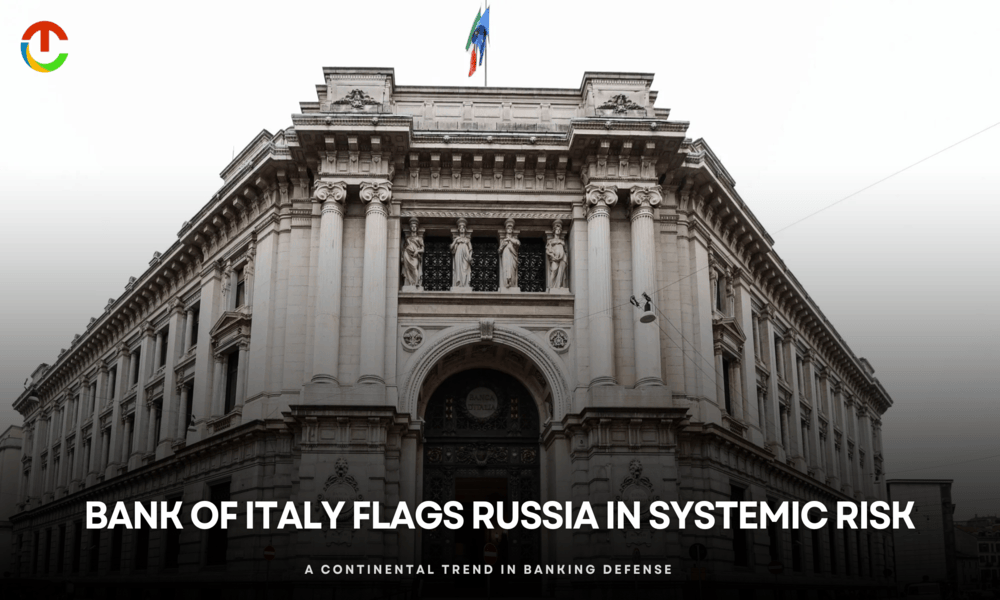In an important victory for international banking regulation, the Bank of Italy has identified four countries that pose a systemic risk to the financial stability of Italian institutions. Russia has emerged as a significant source of concern among the identified countries, owing to increased geopolitical tensions and persistent financial instability.
The Italian central bank made the decision as part of its newest risk-monitoring directive, which aims to protect its domestic banking system from global economic upheavals. This approach is consistent with broader European efforts to improve financial stability in an unstable international environment.
Heightened Surveillance Amid Global Uncertainty
According to the Bank of Italy’s report, lenders are being asked to reassess their exposures in four specific countries that may pose critical risks. The inclusion of Russia reflects not only the war-related sanctions and economic unpredictability but also the broader implications of isolation from the Western financial ecosystem.
Other nations on the list though not officially disclosed in the statement—are speculated to include countries with existing macroeconomic instabilities, political unrest, or those targeted by European Union financial sanctions. The central bank’s objective is to pre-emptively detect pressure points before they evolve into full-scale crises.
This pre-emptive approach comes after a comprehensive evaluation of international credit flow, foreign investment security, and cross-border banking channels that could be susceptible to sudden market shocks.
Focus on Strengthening Italian Lender Resilience
The Bank of Italy highlighted that the selection does not represent a condemnation of any country’s total economy, but rather an essential risk filter for assessing international dependencies. Italian banks are now expected to conduct internal stress tests, modify their capital buffers, and conduct regular exposure checks for the selected nations.
The warning primarily concerns Russia’s economic dissociation from the European system and reliance on opaque financial methods that could destabilize transactions or impede credit repayment capacity. Energy trade conflicts, sanctions, and cyber attacks have exacerbated the risk.
Market analysts have commended the Bank of Italy for its proactive posture, stating that these cautionary measures could shield domestic banks from domino effects seen in past financial crises, such as the Eurozone debt collapse.
A Continental Trend in Banking Defense
The move mirrors similar initiatives from other European financial regulators. Germany’s Bundesbank and France’s Banque de France have also increased scrutiny of banking links to high-risk geopolitical zones. This continental trend marks a new phase of banking diplomacy, where economic resilience is being recalibrated with global political awareness.
In response to the report, several major Italian banks are already in the process of reducing or hedging their foreign assets in flagged regions, particularly in Russia, to align with the new regulatory expectations.
As financial tensions mount worldwide, the Bank of Italy’s vigilance stands as a strategic safeguard, reinforcing not only national but regional financial stability.
Want to know – Donald Trump’s Business Empire in 2025?




